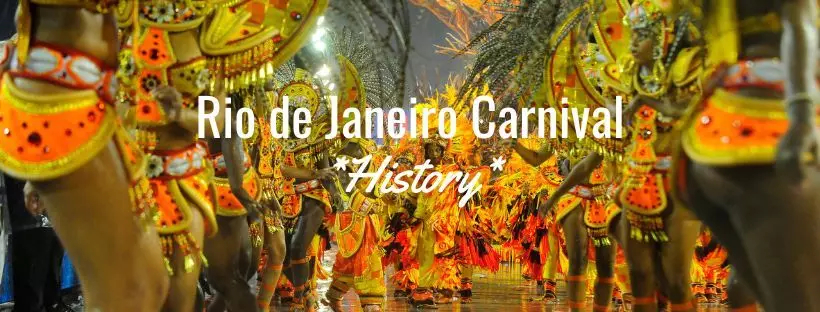
Explore the Rich History of Rio Carnival
Rio Carnival is more than just a party — it’s a centuries-old cultural celebration that tells the story of Brazil’s diverse heritage through music, dance, and vibrant parades. Our Rio Carnival history tours offer travelers a unique chance to dive deep into the origins of this world-famous festival.
Join us for guided tours of samba schools, visits to historic neighborhoods, and insider access to the Sambadrome parades. Whether you want a cultural immersion or VIP experiences, our tailored Rio Carnival travel packages combine education with unforgettable fun.
Secure your place today and make your Carnival trip truly unforgettable.
The roots of the Rio Carnival can be traced back to the Portuguese colonization of Brazil. The Portuguese brought with them the tradition of holding pre-Lenten festivities known as Entrudo, which involved water fights, street parties, and the throwing of water, flour, and limes at each other.
With the arrival of African slaves in Brazil, their music, dance, and cultural traditions became an integral part of the Carnival. African rhythms such as samba, as well as African-inspired costumes and dance moves, began to shape the Carnival's identity.
In the late 19th and early 20th centuries, the Carnival took on a more organized form with the emergence of cordões and ranchos. Cordões were neighborhood groups that paraded through the streets, singing and dancing, while ranchos were more structured groups with themed costumes, music, and choreography.
The modern structure of the Rio Carnival began to take shape in the 1920s with the formation of samba schools. These schools, originally established as community organizations, brought together people from the same neighborhood or social group to prepare for the Carnival parade. Each school chose a theme, created elaborate floats, costumes, and choreographed samba routines.
The Sambadrome, a purpose-built stadium for the Carnival parade, was inaugurated in 1984. Designed by architect Oscar Niemeyer, the Sambadrome provides a designated space for the samba schools to showcase their performances and compete for the title of the year's best school.
Over the years, the Rio Carnival has gained international recognition as one of the world's largest and most vibrant festivals. It attracts millions of visitors from around the globe who come to experience the colorful parades, street parties, and the infectious energy of the Carnival.
Today, the Rio Carnival has become a major cultural event for Brazil, showcasing the country's music, dance, and artistic expression. It is a celebration of Brazilian identity, diversity, and creativity, and continues to evolve while staying deeply rooted in its historical traditions.
Excited to take part to the world's largest Carnival? Get in touch with a local Travel Expert and plan your trip to Brazil!